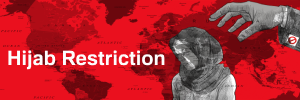Slogan:
- No slogan, but name translates to “Western education is forbidden”
Active in Locations:
- Nigeria
- Niger
- Chad
- Cameroon
Motives:
- Seeks to establish a caliphate, or Islamic state, in Nigeria
- Establish a fundamentalist Islamic state with sharia criminal courts
- Seeks to exemplify the community of Muslims (salafs, or ancestors) who lived during and immediately after the time of the Islamic prophet Muhammad.
Recruitment Methods:
- Because of the group’s decentralized structure, not all fighters necessarily follow the Salafi-takfirist doctrine. Indeed, many members may be non-religious individuals motivated by real and perceived grievances including failures of local governance, sectarian tensions between Christians and Muslims, and the large economic disparity in Nigeria.* Nonetheless, a strain within Boko Haram adheres to violent and extremist practices that even ISIS has at times deemed too brutal.
- According to Amnesty International, Boko Haram’s army has grown to around 15,000 members, with the stated goal of creating an Islamic caliphate. To achieve this end, the group forcefully recruits young men from poor rural villages in northeastern Nigeria, as well as Chad and Cameroon. The average age of recruits appears to be about 30, although that number is trending younger each year and the group often targets teens and even children. 7
- The Mercy Corps study reveals that Boko Haram’s recruitment strategy depends on poverty. The group offers potential recruits money and loans, only to show up a few days later demanding immediate repayment. When a borrower can’t pay, they are forced into the insurgency. Militant leaders exploit the common desire of youth to get ahead economically. 7
- Boko Haram also uses social pressure tactics, in much the same way as ISIS and other Islamic terrorist groups. Mercy Corps interviewed dozens of former militants — as well as 26 youth who resisted recruitment efforts — to pinpoint the group’s strategies. Almost all former members cited a friend, family member or business colleague as a factor in joining Boko Haram. 7
- However, the study also suggests that efforts to fight back against Boko Haram’s recruitment methods are starting to take hold. When the group formed in 2002, Boko Haram enjoyed broad public support as an alternative to Nigeria’s corrupt government, which was blamed for impoverished conditions in the first place. 7
- But Boko Haram’s increasingly violent methods and evident hypocrisy are turning the tide of public opinion. Western-backed counter-terrorism campaigns highlighting these elements are starting to work, dissuading at-risk youth from joining the insurgency. The very fact that Boko Haram is resorting to forced recruitment suggests that its ideological influence is declining. 7
- 1) Financial Incentives: Some members join because Boko Haram pays them to kill Nigerian government officials, steal cars in Boko Haram’s name and sell them to businessmen or government officials, or to rob banks. Some immigrants from neighboring countries may also join for economic purposes. 8
- 2) Kinship: Some northern Nigerians, including politicians, may affiliate with Boko Haram because they are related to members, or to some of the one thousand followers of imam Muhammad Yusuf who were killed during clashes in July 2009. 8
- 3) Inter-religious and government violence: The history of violence between Muslims and Christians in the Middle Belt and civilian deaths during battles with Boko Haram likely led some people to seek revenge against Christians or the Nigerian government through Boko Haram. 8
- 4) Radicalization: Some Boko Haram members may have been radicalized by Nigerian imams. Dr. Ibrahim Datti Ahmed led the anti-polio vaccine and anti-beauty pageant campaigns in northern Nigeria. Ahmad Gumi, in a recent sermon, called Nigeria’s role in the French-led military intervention against Islamists in Mali a Christian-led “crusade.” And Ibrahim Zakzaky, an Iranian-backed Shia leader who organizes anti-American protests, such as those against the “Innocence of Muslims” film, are some examples. 8
Targets:
- Girls, civilians, westerners, other Muslims they deem non-believers
- Initially, Boko Haram primarily targeted state and federal buildings, including police stations and prisons, but it turned toward civilian targets under Abubakar Shekau’s leadership, such as schools, religious institutions, markets, and entire towns. While the group relied mostly on arson and small arms, it also used IEDs, car bombs, and suicide tactics after 2011. 6
- Boko Haram’s suicide tactics have changed over time. Originally, militants struck governmental targets. However, by January 2018, women and children (non-volunteers) targeted civilians and then unusual targets such as internally displaced person camps. As a result of media attention and global prominence, Boko Haram realized after the Chibok girls kidnapping, that female participation in terrorist violence could stimulate additional shock, horror, and thus media value. Women were often recruited into Boko Haram as a result of marriage, often were not searched, and could easily hide suicide vests in loose, billowy clothing. This made them exceedingly valuable assets. 6
Incidents:
- August 26, 2011: Boko Haram attacks the United Nations compound in Abuja. A car
- April 14, 2014: Boko Haram militants kidnap approximately 276 teenage girls from a boarding school in Chibok in Borno. Officials there say some of the girls were able to escape. The kidnapping sparks global outrage and a #BringBackOurGirls campaign on social media.
- July 17-20, 2014: Boko Haram raids the Nigerian town of Damboa. By the time the raid ends, 66 residents have been killed and more than 15,000 have fled.
- July 27, 2014: Boko Haram kidnapped the wife of Cameroon Deputy Prime Minister, Amadou Ali, in an attack on the town of Kolofata in northern Cameroon. Akaoua Babiana, along with 27 others who had been kidnapped by Boko Haram on other occasions, was freed in October 2014 (3 killed, unknown wounded). 6
- February 19, 2018: A faction of Boko Haram raids the Government Girls Science and Technical College in the northeast Nigerian town of Dapchi, kidnapping 110 students of the college.
Sources:
6: https://cisac.fsi.stanford.edu/mappingmilitants/profiles/boko-haram#highlight_text_11840
7: https://www.seeker.com/how-does-boko-haram-recruit-its-soldiers-1954346409.html
8: https://www.cfr.org/blog/boko-haram-recruitment-strategies
9: counter terrorism project










